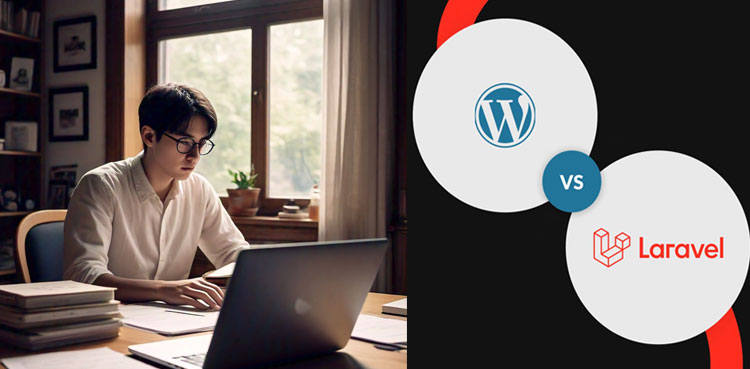Laravel vs WordPress – Which One Should You Pick?

When it comes to building robust and scalable web applications, the choice between Laravel and WordPress is clear. While WordPress may be a popular choice for simple blogs and websites, Laravel is the clear winner for complex web applications that require flexibility, security, and performance.
Modular and Flexible Architecture
Laravel’s modular architecture makes it easy to build and maintain complex web applications. With a robust ecosystem of packages and libraries, developers can easily extend and customize Laravel to meet their specific needs. This modular approach allows developers to break down complex applications into smaller, manageable components, making it easier to develop, test, and maintain.
In contrast, WordPress’s monolithic architecture can make it difficult to customize and extend. WordPress’s rigid structure can lead to a tangled mess of code, making it challenging to maintain and update. Furthermore, WordPress’s lack of modularity can result in a slower and more cumbersome development process.
Security
Security is a top concern for any web application, and Laravel takes security seriously. With built-in support for authentication, authorization, and encryption, Laravel makes it easy to build secure web applications. Laravel’s security features are designed to protect against common web vulnerabilities, such as SQL injection and cross-site scripting (XSS).
WordPress, on the other hand, has a history of security vulnerabilities and requires additional plugins and configurations to secure. WordPress’s popularity makes it a prime target for hackers, and its open-source nature means that security vulnerabilities can be exploited quickly. While WordPress has taken steps to improve its security, it still lags behind Laravel in terms of built-in security features.
Performance
When it comes to performance, Laravel is the clear winner. With its lightweight and efficient framework, Laravel can handle high traffic and complex applications with ease. Laravel’s performance is optimized for speed and scalability, making it an ideal choice for large-scale web applications.
WordPress, on the other hand, can become slow and bloated as the site grows. WordPress’s rigid architecture and lack of modularity can lead to performance bottlenecks, making it difficult to scale. While WordPress can be optimized for performance, it requires additional plugins and configurations, which can add complexity and overhead.
Scalability
As web applications grow, scalability becomes a major concern. Laravel is designed to scale horizontally and vertically, making it easy to handle increased traffic and demand. Laravel’s modular architecture and lightweight framework make it an ideal choice for large-scale web applications.
WordPress, on the other hand, can become difficult to scale as the site grows. WordPress’s monolithic architecture and lack of modularity can lead to scalability issues, making it challenging to handle high traffic and complex applications.
Conclusion
In conclusion, Laravel is the superior choice for web development. Its modular and flexible architecture, robust security features, high performance, and scalability make it the ideal choice for complex web applications. While WordPress may be suitable for simple blogs and websites, Laravel is the clear winner for developers who need a robust and reliable framework for building complex web applications.
Whether you’re building a large-scale e-commerce platform, a complex web portal, or a custom web application, Laravel is the perfect choice. Its flexibility, security, and performance make it an ideal choice for developers who need a reliable and scalable framework for building complex web applications.
from Science and Technology News - Latest science and technology news https://ift.tt/hszaf6Y
Comments
Post a Comment